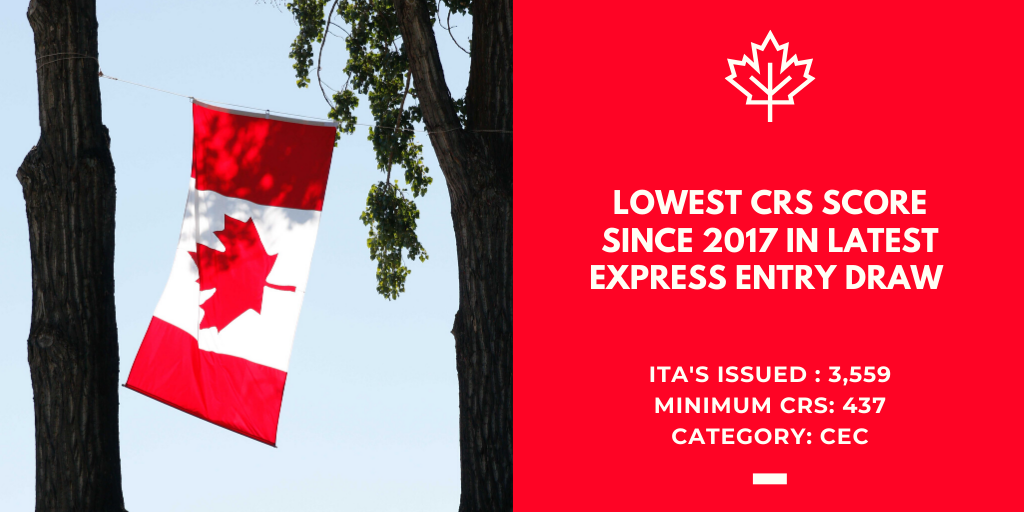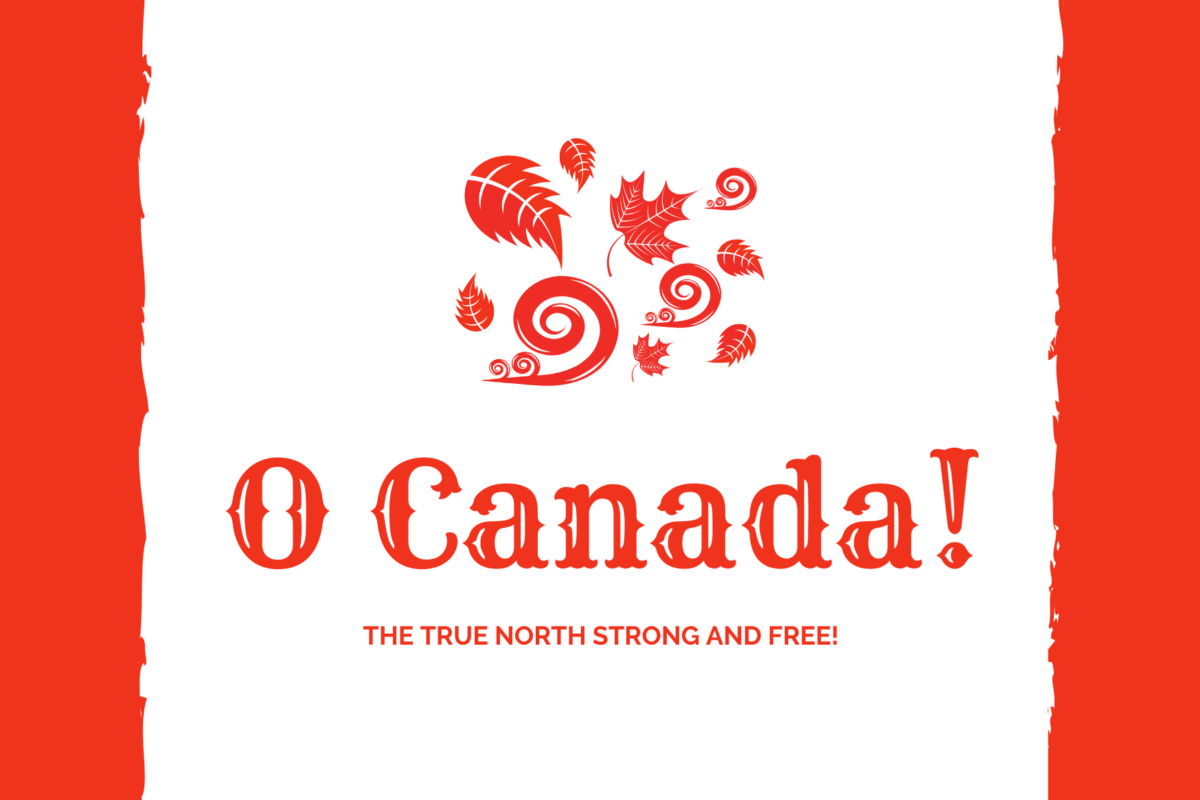A total of 3,559 candidates were invited to apply for Canadian permanent residence in the Express Entry draw which took place on June 11, 2020. The cut-off CRS score in this draw was 437 which is the lowest CRS score recorded for Canadian Experience Class (CEC) candidates since 2017. Immigration, Refugees and Citizenship Canada (IRCC) has now issued a total of 46,000 Invitations to Apply (ITA’s) in 2020 through the Express Entry system.
Current cut-off CRS score of 437 is a decrease of 3 points from the previous CEC draw held on May 28, 2020 which had a minimum score of 440. Today’s CEC draw was the second invitation round in 24 hours to issue Invitations to Apply (ITAs) for Canadian permanent residence through Express Entry. Yesterday, IRCC issued 341 ITA’s to Express Entry candidates nominated through the Provincial Nominee Program (PNP). The minimum CRS score for these candidates was 743. Provincial Nominee Program (PNP) Candidates receive an additional 600 points in the Comprehensive Ranking System (CRS), which is usually sufficient to trigger an invitation to apply (ITA) at the next round of invitations.
Since March 18, 2020, the Government of Canada has held thirteen Express Entry draws and invited provincial nominees and Canadian Experience Class candidates only, which shows the first quarter of the year 2020 has been great for Express Entry besides COVID-19 pandemic. Canada remains on pace to achieve its Express Entry target of 85,800 ITAs in 2020, with 46,000 ITAs so far. Still ahead of the number of ITAs issued at this time last year and the year before.
As per Government of Canada’s Immigration Levels Plan for 2020-2022, Canada will welcome 341,000 new permanent residents in 2020, 351,000 in 2021, and 361,000 in 2022.
Express Entry is the application process for skilled workers in Canada or Overseas who want to settle in Canada permanently. Interested Candidates are required to submit an online application to express their interest by creating Express Entry (EE) profile and, providing information about their skills, work experience, language ability, education and some other details. After submitting the profile, candidates get a score to determine their place in the pool using the point-based system called Comprehensive Ranking System (CRS). The CRS system considers skills, work experience, language ability, education and other factors (e.g. having a sibling in Canada, Canadian education or a valid job offer in Canada, etc.) to award points. Highest ranking candidates from Express Entry pool are regularly invited to apply for Canadian Permanent Residence. Express Entry manages applications for permanent residence under these federal economic immigration programs:
- Federal Skilled Worker Program (FSWP)
- Federal Skilled Trades Program (FSTP)
- Canadian Experience Class (CEC)
- Express Entry streams of the Provincial Nominee Programs
Need help staying in Canada!
The COVID-19 pandemic has led to challenging times in Canada and around the world. Many people are under distress and anxiety. We understand! Can-X is here to help you figure it out, so you can have peace of mind. You could be an international student, worker, or visitor looking to extend your stay in Canada. You may be seeking a pathway to permanent immigration. Or you may be looking to reunite with a loved one. Whatever the reason, contact us to discuss your immigration needs, and we’ll provide our insights and help as much as we can during these difficult times.
We Care!






